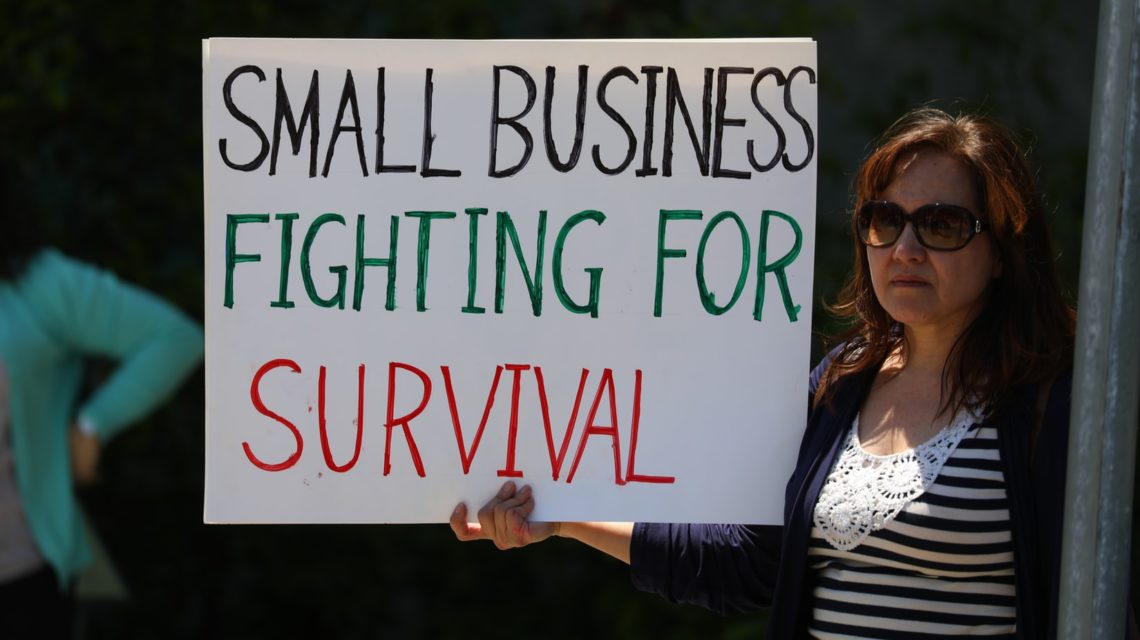By Lys Mendez
UCLA Latino Policy and Politics Initiative | December 17, 2020
UCLA study recommends Congress prioritize communities of color for next pandemic relief payments
Neighborhoods in California whose populations are majority Black, Latino or Asian benefitted less from the $500 billion in forgivable loans distributed nationwide through the Paycheck Protection Program amid the pandemic, according to a new UCLA report.
The findings, published by the UCLA Latino Policy and Politics Initiative and the UCLA Center for Neighborhood Knowledge, found that the lack of federal support will likely widen economic inequality in communities of color, which already had fewer small businesses and jobs than majority-white neighborhoods.
The analysis was based on data from the Small Business Administration, the Census Bureau ZIP Code Business Patterns Dataset and the American Community Survey.
The researchers write that future federal pandemic relief efforts should earmark a percentage of funds to directly benefit businesses in disadvantaged communities, which the report finds generally have higher concentrations of residents of color.
The report found that stimulus funds helped majority-white neighborhoods retain 51% of their pre-pandemic jobs, compared to 44% in majority-Latino neighborhoods and 45% in majority-Asian neighborhoods.

And although the program helped retain 54% of pre-pandemic jobs in Black neighborhoods, that figure is somewhat misleading because those neighborhoods typically had a smaller job base to begin with. When standardized on a per-resident basis, the federal loans just supported 5.8 jobs per 100 residents in Black neighborhoods, compared with 8.1 per 100 residents in white communities.
“Economic recovery is only possible if communities of color get the support they need and deserve,” said Silvia González, a staff researcher at the Center for Neighborhood Knowledge and a co-author of the report.
“Equity and economic justice should be guiding priorities in any future stimulus efforts.”
The authors also found that Latino and Black neighborhoods received less funding per capita than white neighborhoods:
- Asian neighborhoods received $670 per resident
- White neighborhoods: $666 per resident
- Black neighborhoods: $445 per resident
- Latino neighborhoods: $367 per resident

“Communities are being unfairly left behind at a time when the pandemic has revealed serious inequalities that need to be urgently tackled,” said Rodrigo Domínguez-Villegas, director of research at the Latino Policy and Politics Initiative and a co-author of the report. “Federal policy should not contribute to worsening income inequality, and future stimulus efforts must fix the inequities created by the pandemic and the uneven access to loans.”
By providing more loans through community development financial institutions — lenders that deploy capital to entrepreneurs who are underserved by traditional banks — the government can ensure that a larger proportion of funding reaches entrepreneurs of color, the authors write.
The report also recommends that the Small Business Administration provide cultural and linguistically appropriate technical assistance to guide Black, Latino and Asian business owners on the process for securing funding.
The research was funded by the Wells Fargo Foundation.










